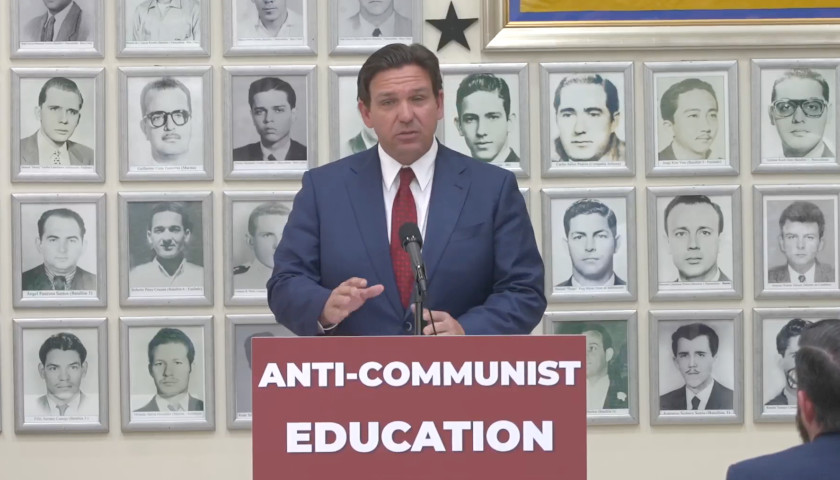by Scott McClallen
Gov. Gretchen Whitmer is expected to pitch spending $500 million of additional federal taxpayer money on private companies that produce electric vehicles (EV). The governor will discuss her proposal on Wednesday at 11 a.m.
However, it’s unclear if general economic development is an approved use of federal COVID dollars under U.S. Treasury guidelines.
The Detroit News first reported the story.
After Ford spent $11.4 billion in EV factories in Kentucky and Tennessee, Michigan lawmakers panicked and created a billion-dollar fund to lure companies into the state.
General Motors (GM) subsequently promised a $6.5 billion investment estimated to provide 4,000 jobs by 2024 with taxpayers footing at least $824 million – about $205,000 per job created.
Orion Twp. gave GM an additional tax break on a $1.3 billion project that’s not yet developed enough to estimate taxpayer cost.
In her State of the State address, Whitmer pitched a proposal to grant $2,500 in state subsidies to each purchaser of EV vehicles in Michigan. She noted the subsidies would help transform the state into the epicenter of EV automation.
Few Michiganders driving EVs relative to gas vehicles. The Michigan Secretary of State’s office counts 5.8 million gas vehicles, 13,545 EVs, and 105,651 hybrid vehicles registered statewide.
A GOP-dominated legislature would have to approve Whitmer’s pitch. Rep. Thomas Albert, R-Lowell, has called for “targeted and sustainable tax relief.”
Previously, Senate Majority Leader Mike Shirkey, R-Clarklake, welcomed EV spending.
“[T]he economic well-being of our state isn’t a partisan matter,” Shirkey said. “High-quality jobs don’t have a party affiliation.”
Meanwhile, other lawmakers call the subsidy a handout that benefits rich companies. At the time, Rep. Abraham Aiyash, D-Detroit, tweeted: “ ICYMI: GM will be getting nearly a BILLION dollars in taxpayer money for jobs that will likely pay only $36k a year with no guarantee of a union or benefits. The art of the deal.”
Rep. Steve Johnson, R-Wayland, described the handout as “big business getting into bed with big government.” He added: “We’re actually giving from the poor to the wealthy.”
John Mozena, president of the Center for Economic Accountability, a nonprofit organization for transparent economic development policy, warned the the Treasury Department’s Jan. 6 final rules for the Coronavirus State and Local Fiscal Recover Funds (SLFRF) limit spending on general economic development.
The rule says that recipients should assess potential fund spending determined by “which beneficiary experienced the negative economic impact” – such as households, small businesses, and nonprofits.
“SLFRF funds may be used to make loans, including to small businesses, provided that the loan is an eligible use, and the cost of the loan is tracked and reported in accordance with Treasury’s Compliance and Reporting Guidance,” the rule says. “Funds that are unobligated after December 31, 2024 must be returned to Treasury.”
An industry is presumed to be impacted if the industry experienced employment loss of at least 8%, the rules say.
“Example economic indicators include gross output, GDP, net profits, employment levels, and projected time to restore employment back to pre-pandemic levels,” the rule says.
Mozena asked what would happen if Michigan promised $500 million in ineligible spending, and then the Treasury clawed that money back.
“There’s a real risk that if Michigan makes commitments thinking it has federal dollars backing it up, that those dollars might not be there when the bill comes due,” Mozena said in a phone interview.
An Upjohn Institute for Employment Research study concluded between 75% and 98% of all subsidized investments would have happened without the subsidy.
A Mackinac Center for Public Policy report analyzing more than 7,300 incentive deals in Michigan concluded that business incentive programs increase a company’s employment and sales but come at an average taxpayer cost of $593,913 per job created per year.
“That’s over and above the reality that these subsidy deals don’t work,” Mozena said. “Big companies with big projects aren’t having their decisions changed by these subsidies” because these private companies have much more money than the state, Mozena said.
Despite enduring a chip shortage that has negatively effected sales of new vehicles, The Detroit Free Press reported GM made $14.3 billion in 2021.
– – –
Scott McClallen is a staff writer covering Michigan and Minnesota for The Center Square. A graduate of Hillsdale College, his work has appeared on Forbes.com and FEE.org. Previously, he worked as a financial analyst at Pepsi.
Photo “Gov. Whitmer” by University of Michigan’s Ford School CC BY-ND 2.0.








